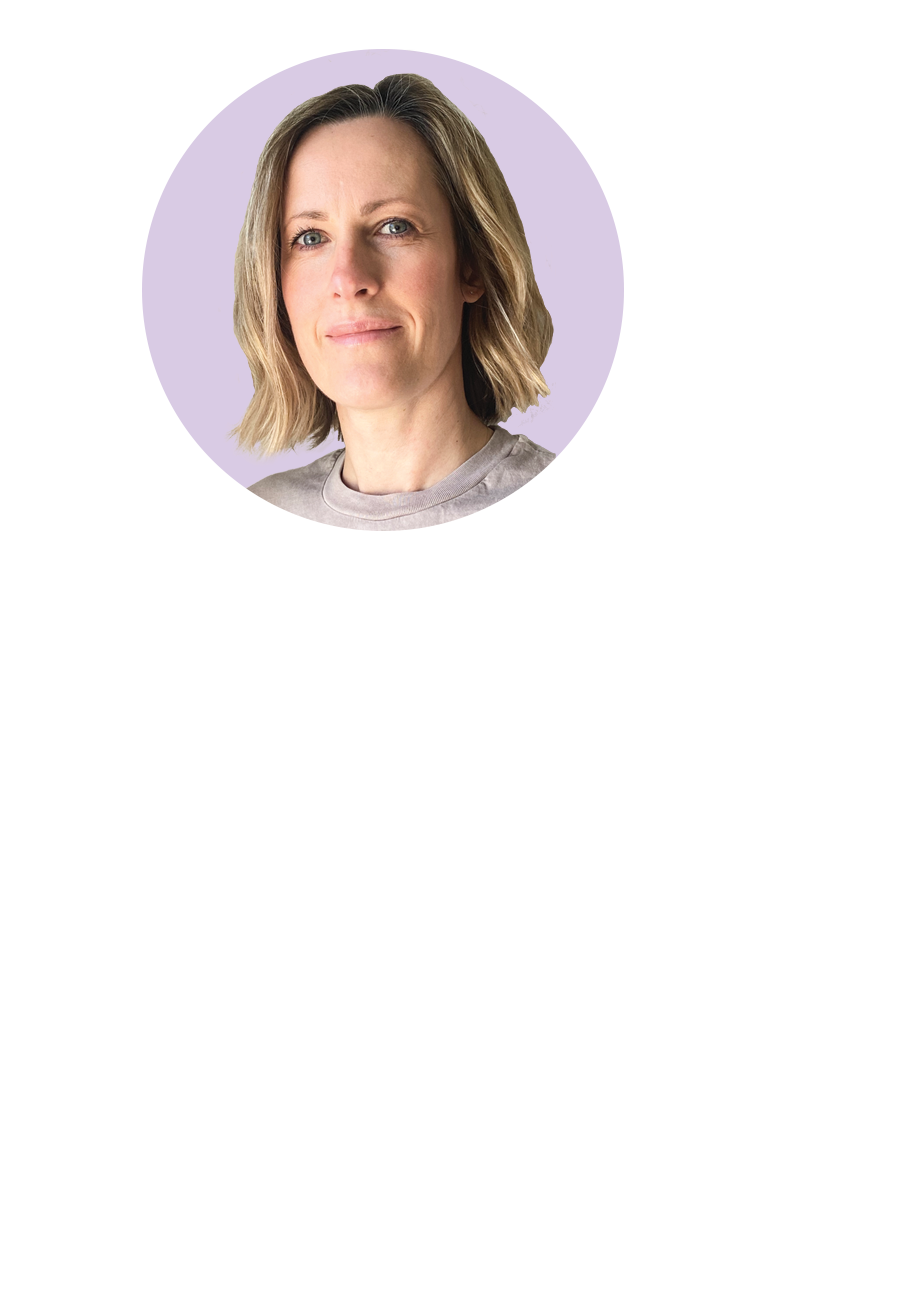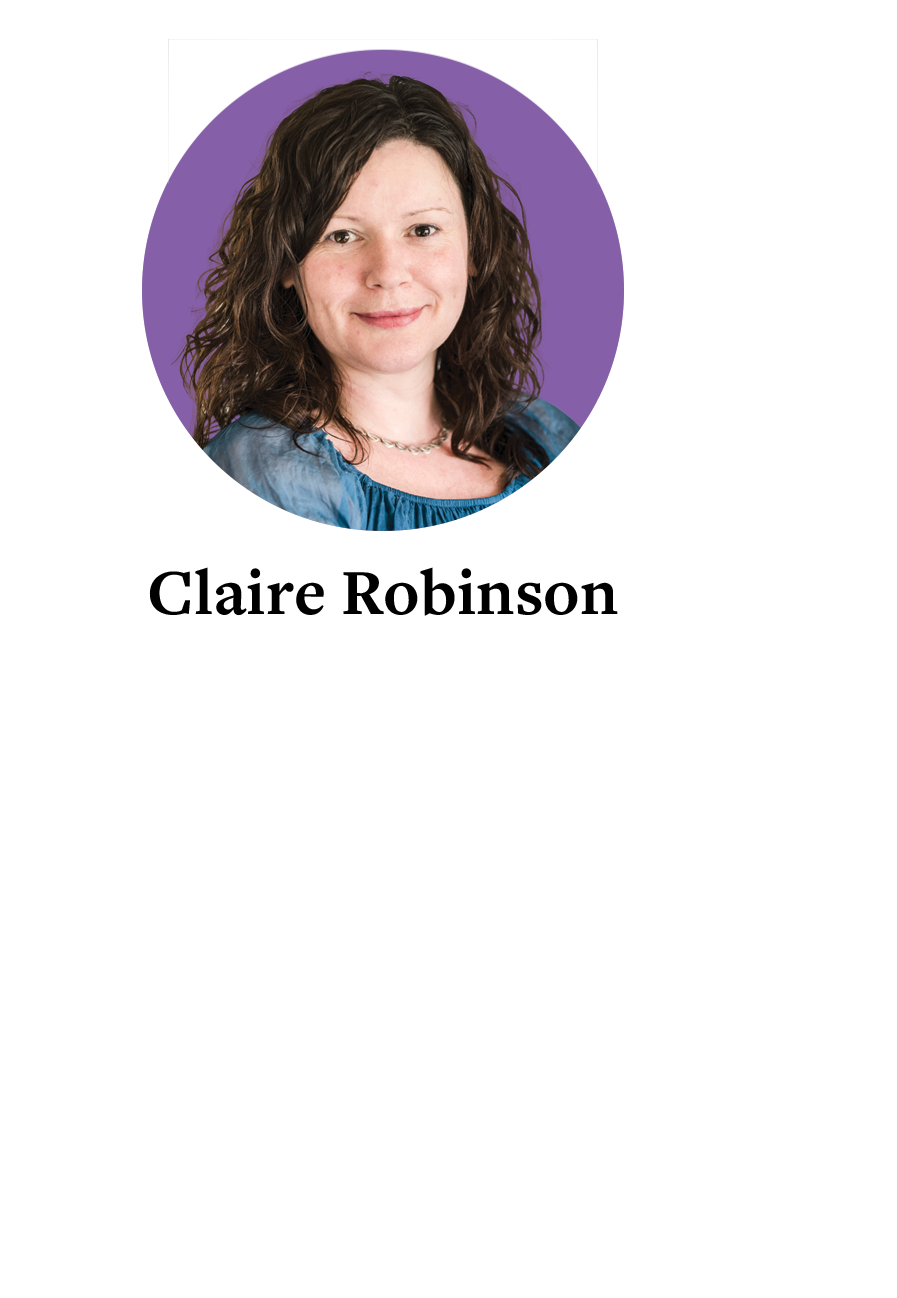‘Addressing the gaps I had identified required more than clinical expertise’ – exploring the routes to PhD sponsorship (part 2)
Continuing Synergy’s focus on pathways into research, academics from University Hospitals Leicester share their journeys, and explain why pursuing a PhD was the right course for them

‘Addressing the gaps I had identified required more than clinical expertise’ – exploring the routes to PhD sponsorship (part 2)
Continuing Synergy’s focus on pathways into research, academics from University Hospitals Leicester share their journeys, and explain why pursuing a PhD was the right course for them

As a sonographer deeply committed to advancing patient care, I have always been curious about how research can enhance clinical practice. However, like many in allied health professions, transitioning from a largely clinical role to a research-focused career seemed daunting. The National Institute for Health and Care Research (NIHR) Doctoral Clinical and Practitioner Academic Fellowship (DCAF) provided the opportunity to bridge this gap and embark on a PhD route that combines clinical expertise with academic inquiry. This is my journey so far.
My introduction to research began with a passion for using diagnostic imaging to improve patient outcomes. Over the years, I became aware of clinical challenges and have joined opportunities, along with other members of the multidisciplinary team, for innovation and service improvement to successfully overcome them.
One recurring observation I had, largely during teaching, was operator variability in risk stratification of thyroid nodules and the interpretation of national guidance by ultrasound operators. These experiences ignited a desire to explore evidence-based solutions that could impact both practice and policy.
Despite my enthusiasm, I initially felt unsure about continuing with a research career after completing my MSc. However, encouraged by my clinical and academic mentors I began researching the various routes. With limited role models in academic research during my career, the prospect of pursuing a PhD felt overwhelming. But I realised that addressing the gaps I had identified required more than clinical expertise – it demanded robust research skills and a deeper understanding of the evidence base.
The NIHR DCAF is designed to support clinical and practitioner academics; the fellowship offers a structured pathway to develop research expertise while maintaining links to clinical practice. Learning about this opportunity through the NIHR research support service (RSS) and reaching out to colleagues who had completed the fellowship was the first step.
Preparing my DCAF application was both challenging and rewarding. The process required:
Defining a research question
Perhaps the main reason for choosing this route was my established research question, developing a recently completed pilot study, which was clinically relevant and feasible within the PhD framework. However, I recognised the need for support to enhance my understanding of robust research design to ensure my findings could be credible and impactful.
Building a support network
This involved seeking guidance from NIHR RSS, experienced researchers, clinicians, established clinical academics and previous NIHR fellows. Strong mentorship throughout my career, developing my role within the support of a multidisciplinary team, a supportive management team and working in a department with strong academic links aided this process.
Demonstrating potential
Highlighting my clinical expertise, experience of completing the pilot study, published works, previous involvement in small-scale quality improvement projects and national clinical trials, a strong commitment to patient care and working at an interdisciplinary level all reinforced the supporting information within the application.
One of the most valuable aspects of the application process was drafting my scientific abstract. It forced me to articulate the significance of my initial project and its potential to impact clinical practice. Although refining this took time, it strengthened my application and clarified my goals.
The application process wasn’t without hurdles; it is a challenging task and couldn’t be achieved without a clear research focus, support from the NIHR RSS, my supervisors and clinical-academic colleagues. Balancing clinical responsibilities with preparing the fellowship application required dedicated time management, fully supporting my line manager. Perhaps without this, the NIHR Pre-doctoral Clinical and Practitioner Academic Fellowship (PCAF) or PCAF Bridge would be a more appropriate initial step.
I am currently waiting to see if I have been shortlisted for interviews. Whether I am successful or not, this journey has strengthened my ambition to pursue the clinical-academic aspect of my role.
I had been a radiographer for 20 years when I got my consultant radiographer role in 2021. I found my niche, in forensic imaging, about 12 months after starting, but there weren’t any full or part-time jobs at that time. I developed my skills, largely through research, which I completed in my own time as research was not part of my role, into how post mortem CT (PMCT) could be used in forensic cases, and later into how PMCT could replace an autopsy in non-suspicious deaths and developing the techniques to make that work.
I completed an MSc in 2007, which helped me broaden my understanding of research and confirmed I really enjoyed it, and it spurred me on to do more. I work with two professors and so we disseminate all the research we do, through papers and presenting at conferences. I contributed to a few papers we had published but my dissertation, on using PMCT for anthropology measurements, was my first as a first-named author. We have continued to publish and I now have more than 40 publications.
My journey to getting a PhD
I was awarded a PhD in June 2021. I can’t remember who first suggested a PhD to me, but once that idea had been floated, it kept popping back up. I spoke to a professor who had done a PhD and he told me not to bother – it was a lot of work, he said, but if I wanted to see what it was like he’d give me a small project to complete. I left firmly believing they didn’t think I could do it but that just spurred me on. I went away, completed the project and arranged to meet them again. As I thought, they hadn’t expected me to go back and, as I had, we discussed doing a PhD.
I applied for and was awarded a NIHR/HEE Clinical Doctoral Research Fellowship that started in 2014. Applying for the fellowship was not easy and I was very fortunate to get help from people who had already applied for funding (NIHR or another funding body), and from someone who had sat on committees that award research funding. If I hadn’t, I would not have gotten the fellowship. As well as helping to prepare the application, they also supported me throughout my PhD, so getting the right team to help me was essential. I was fortunate to have great support with my application from Professor Bruno Morgan, who became my PhD primary supervisor. He was a huge help throughout my PhD. My second supervisor and the other five team members were very supportive of my research and were a great help in enabling me to achieve my PhD.
I did a traditional PhD (original research submitted by a thesis) as this allowed me to complete the research I wanted to do. It was not easy and took seven years part time. Full time was not an option as I had a full-time job that I could not, at that time, hand over to anyone else (I was developing the first non-suspicious death imaging service in the UK). My PhD should have been completed in six years but my job increased as a result of the Covid pandemic.
Did it make a difference?
You don’t need a PhD to be a radiographer and gaining one involves a lot of time, energy and stress, but it does help open up more career options. Since being awarded my PhD, I secured my consultant radiographer role (five months later) and it undoubtedly helped, but not necessarily just from having the qualification.
Getting the PhD changed me as a person. You learn far more than just your subject as you gain a broad set of skills and you start to look at the world differently, questioning things (not just those in your area, but also in the news or the way information is presented (or, perhaps more importantly, what’s omitted)) and questioning yourself.
It also helped me secure a senior lecturer role at a local university, which is helping me fulfil a goal, to be involved in education, by lecturing, and I’m currently helping to design a research module. Getting this job has also enabled me to pursue another thing that’s changed since doing my PhD – I realised there is so much I don’t know and I want to continue learning. I’ve just completed a teaching qualification and now have to decide what to do next.
Reflections on a PhD
Did I enjoy doing my PhD? Definitely – I gained so much and it’s a huge personal achievement. But had you asked me at the time, I may have answered differently as it did cost me a lot of time with family and friends, I had some stressful, sleepless nights and at times it was quite a lonely place to be.
Would I advise others to do a traditional (research based) PhD? Yes, because I was able to research a subject that interested me and I have gained so much. But also no, because it took over much of my life for seven years.
If someone asked me should they do a traditional PhD, I’d tell them to consider if they would do the research if it didn’t involve getting the qualification. I think it says a lot about their motivation and what it is they want to achieve. If it’s the qualification, that’s fine, but they will find it tough if they don’t enjoy the process of getting it and there may be other ways of getting a PhD that suit them better.
The best advice I received was to do my PhD in something that interested me and to do it with the right team. They helped (practically in the research and writing), advised at every stage (particularly when things did not go as planned) and supported me personally. I wouldn’t have got my PhD without them.
Pros and cons
(scroll to reveal)

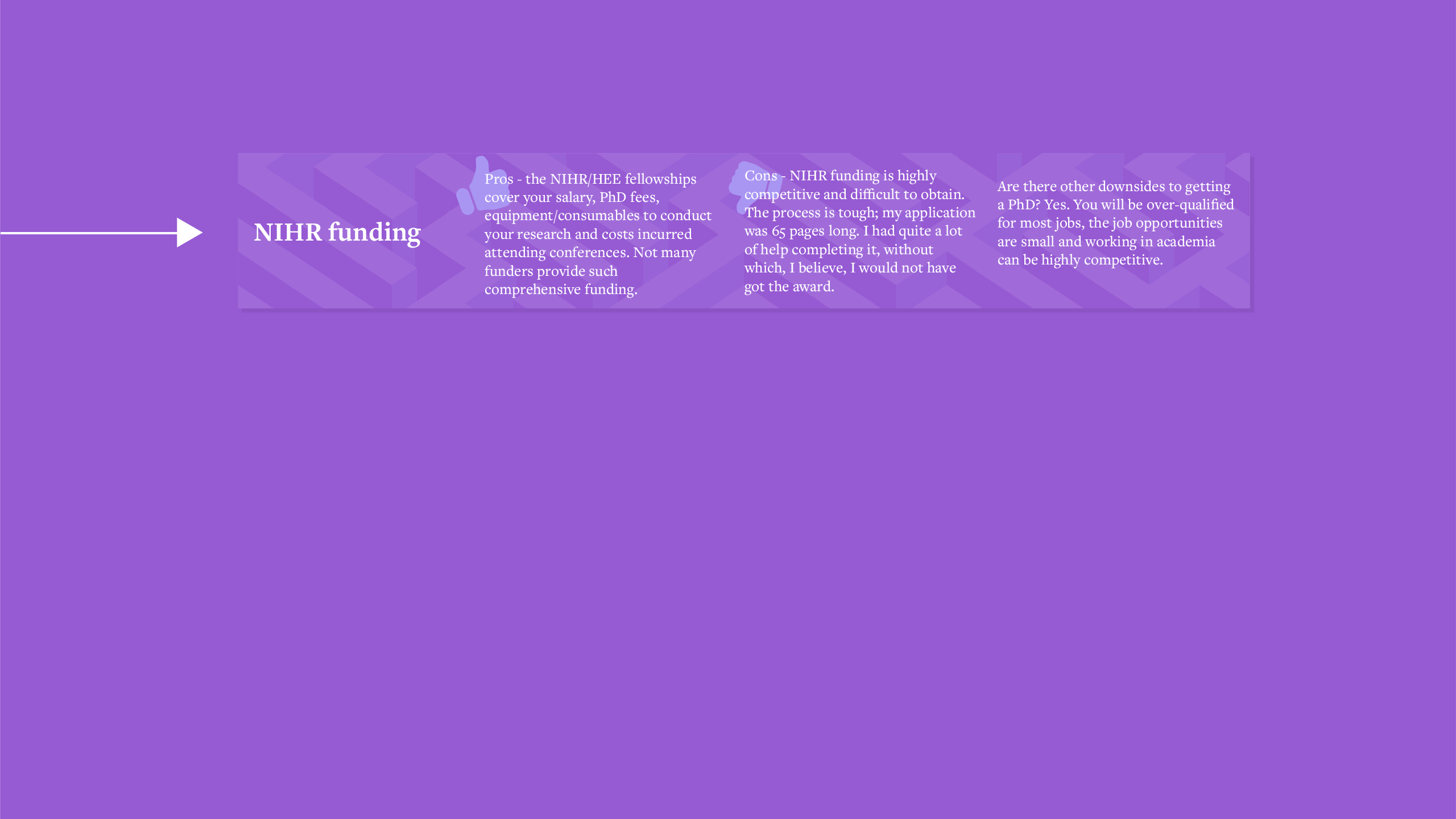
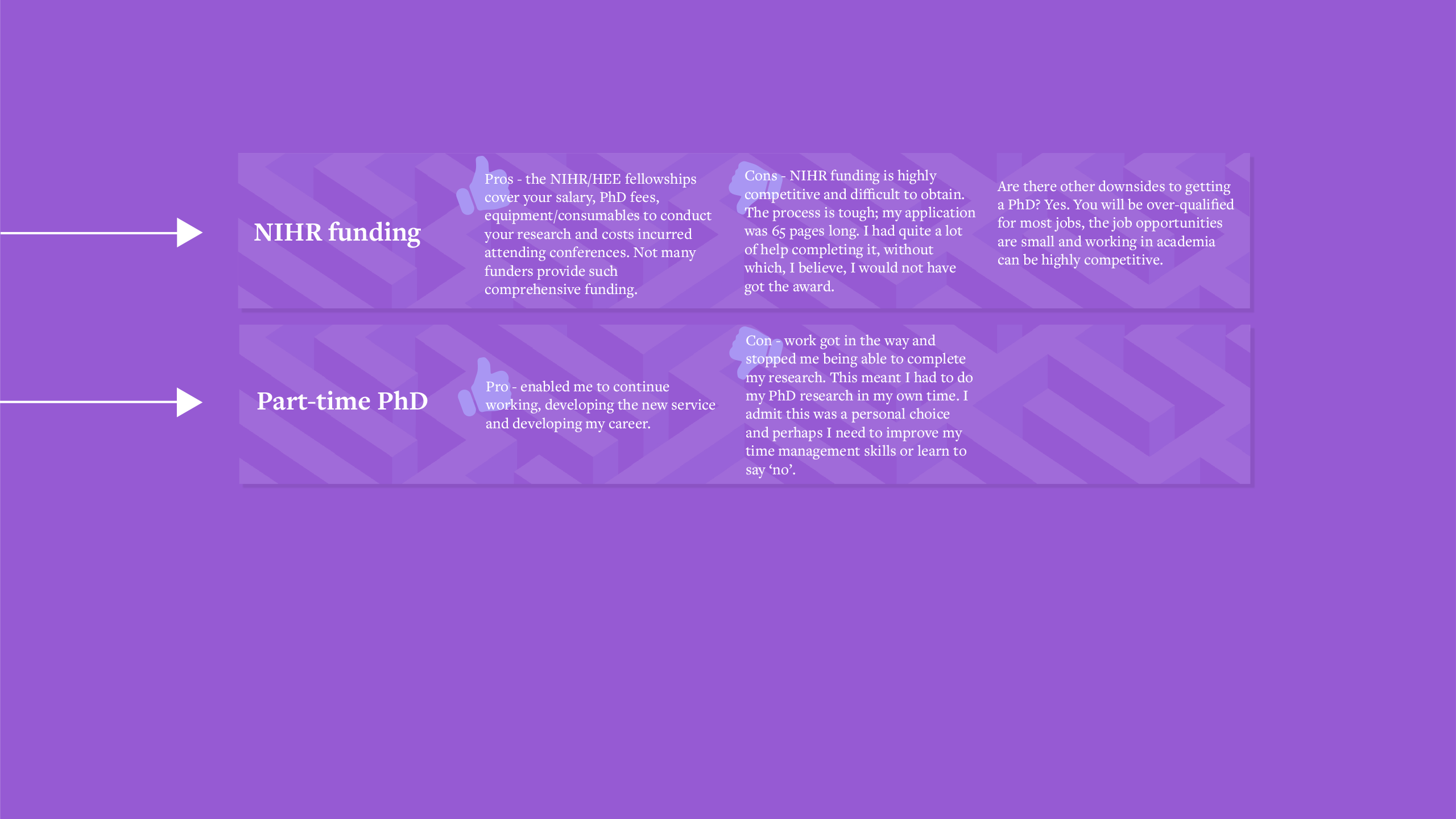
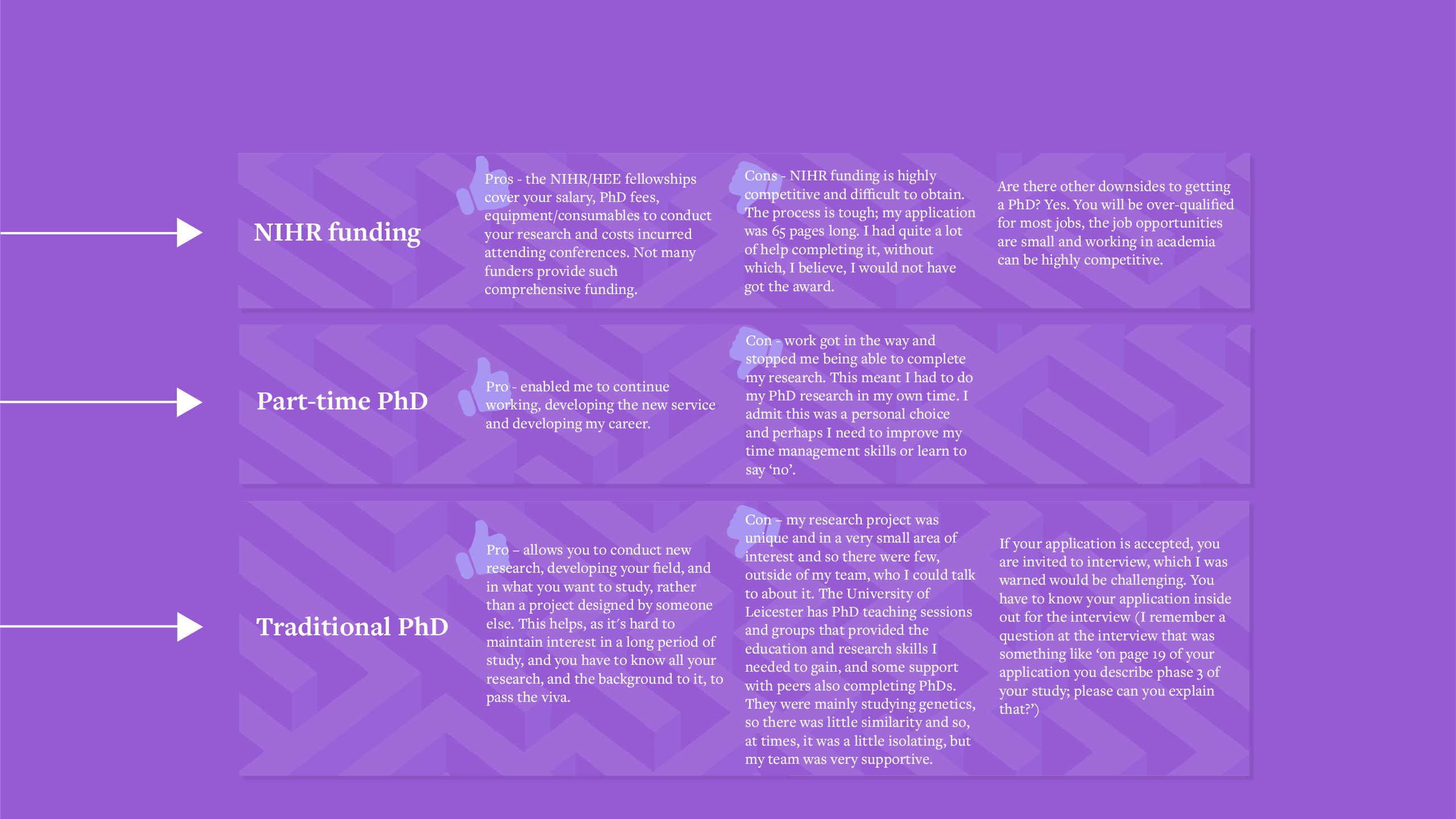
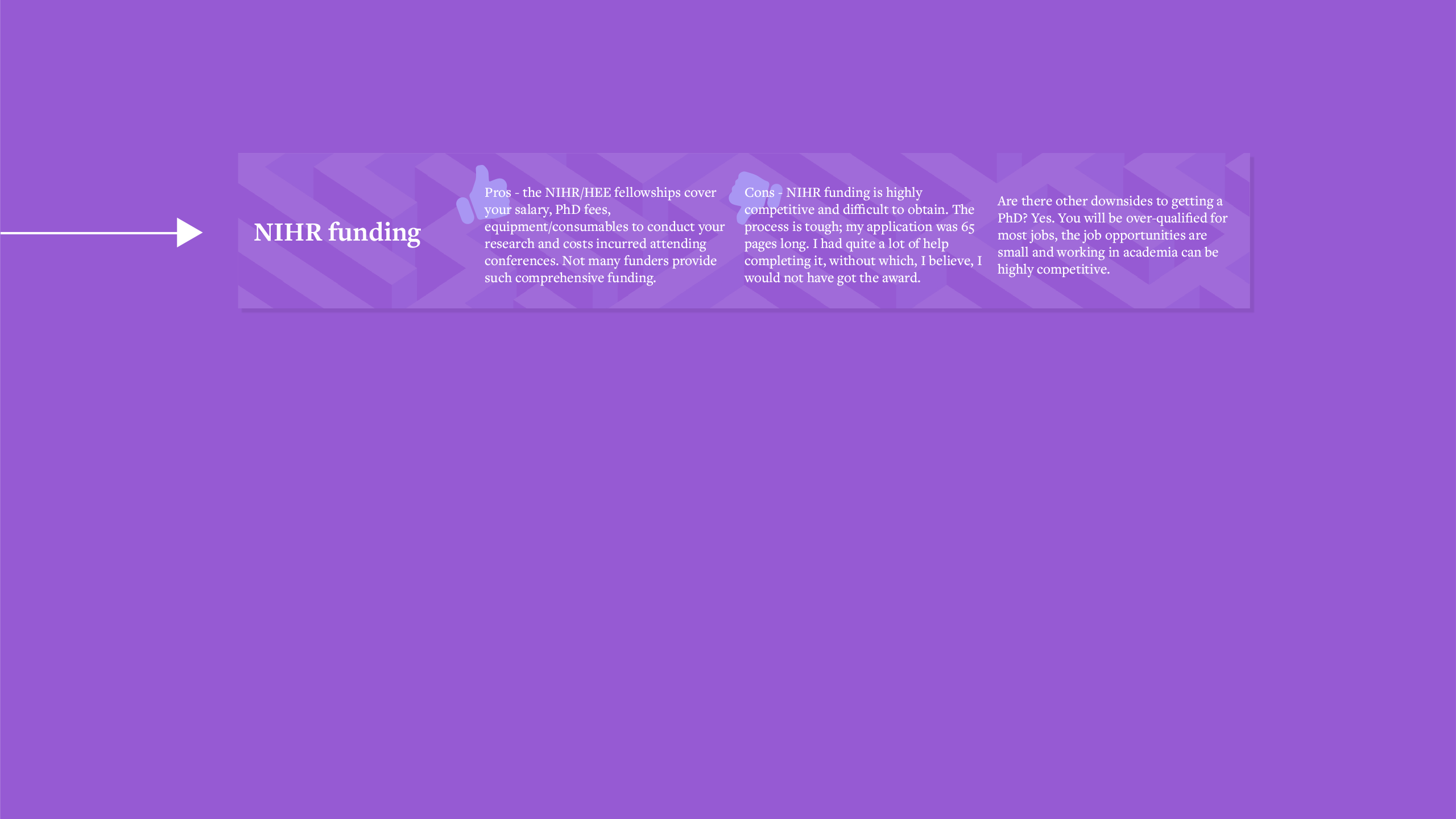
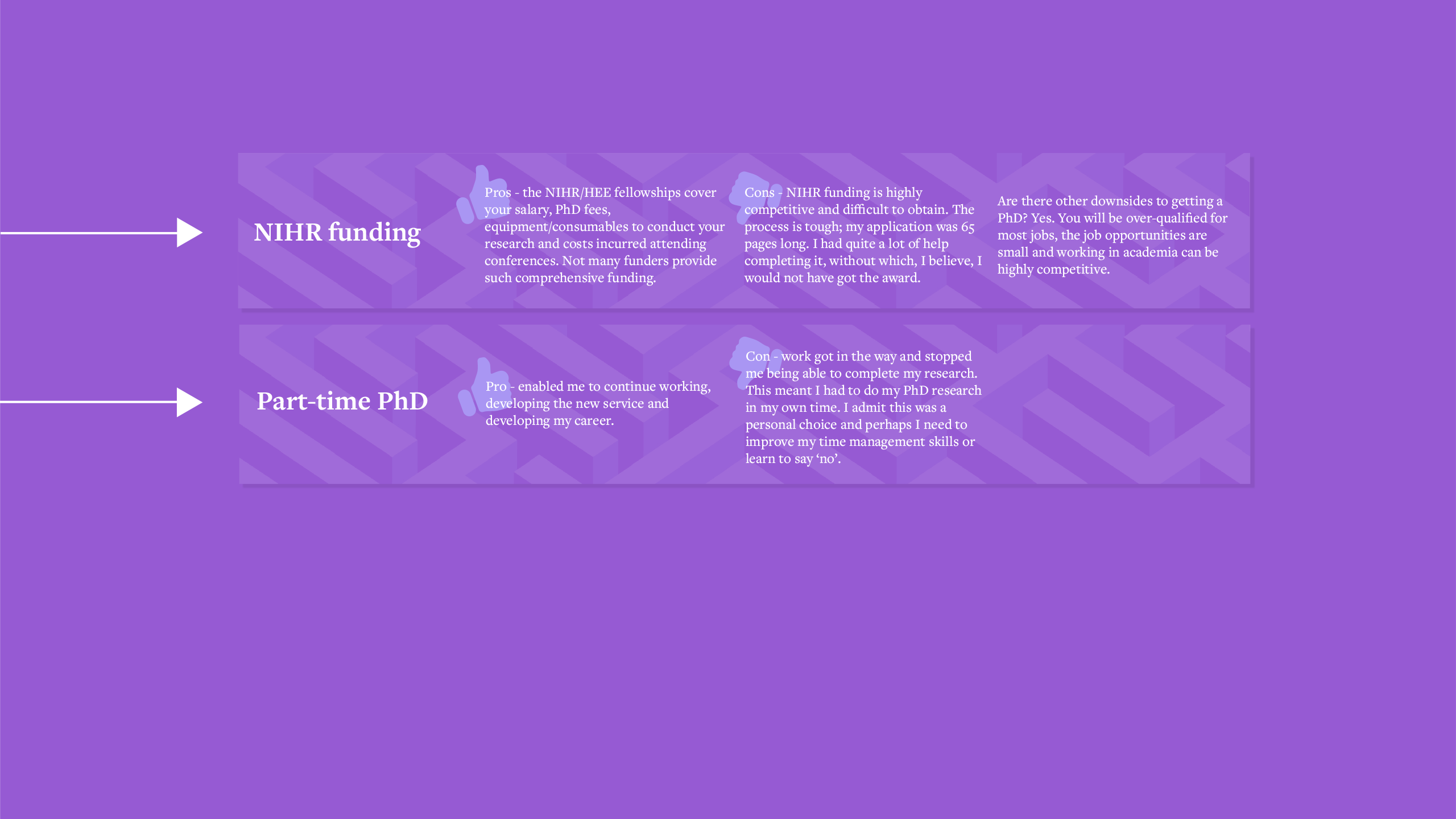
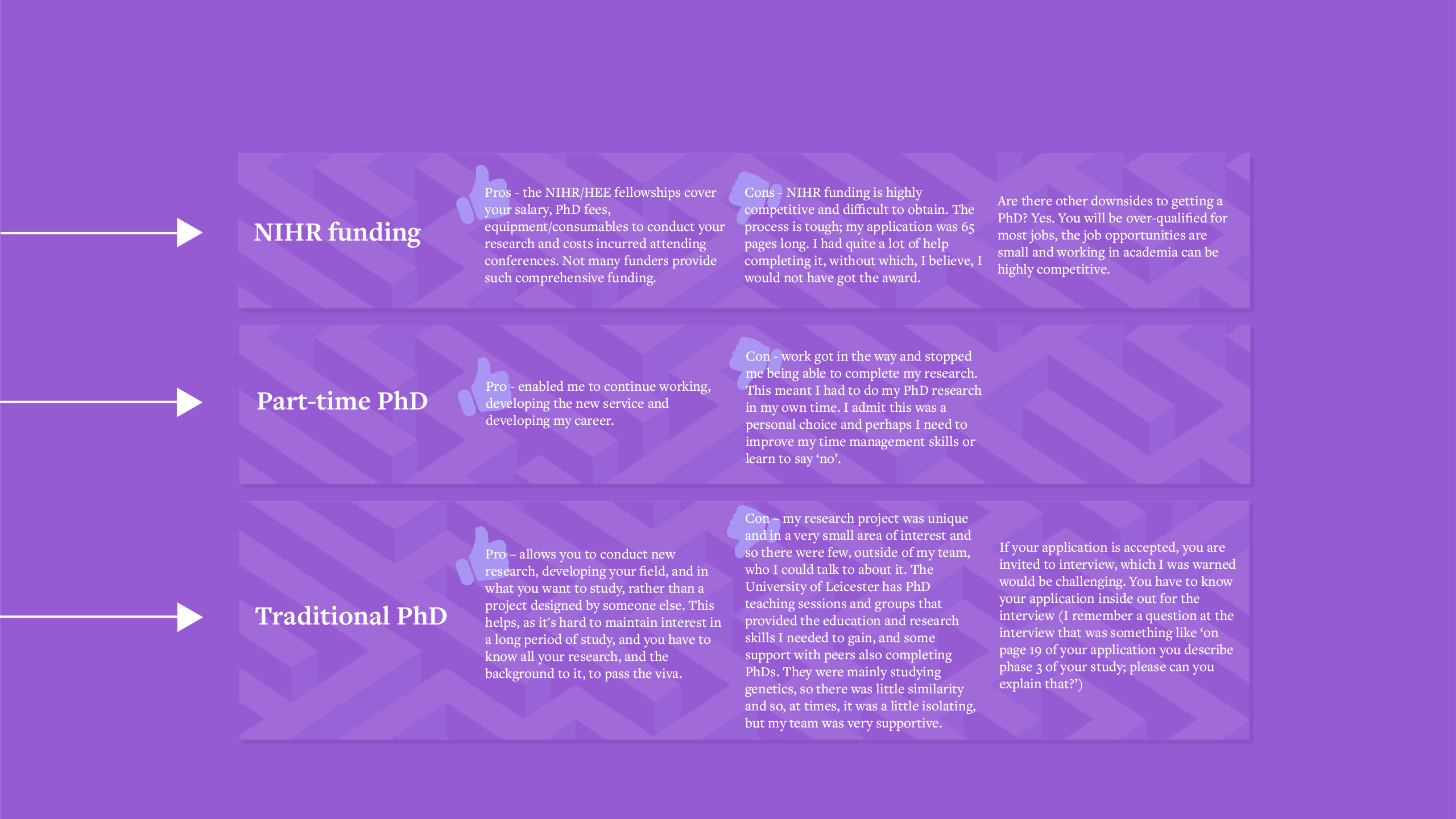
Image credit: Getty Images
More about PhD funding
The SoR offers a doctoral fellowship grant, funded by the College of Radiographers. Find out more here.
Read more



